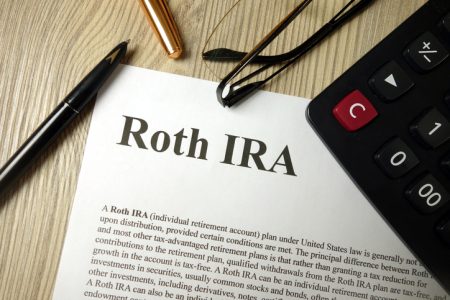When it comes to tax planning rules, many retirees often ask one question in particular: is a pension considered earned income? The short answer is no—pension income is generally not classified as earned income for tax purposes. Unlike wages, salaries, tips and self-employment earnings, which qualify as earned income, pensions fall into the category of unearned income. This distinction matters because it affects various aspects of your tax situation, including eligibility for certain tax credits, Social Security taxation and Medicare premium calculations.
Ask a financial advisor how your pension impacts your tax situation so you can better prepare for retirement.
What Qualifies as Earned Income?
Earned income primarily consists of wages, salaries and tips you receive from working. When you clock in hours at a job and receive a W-2 form at tax time, that compensation qualifies as earned income. This category includes not just regular wages but also bonuses, commissions and any taxable fringe benefits your employer provides.
If you work for yourself, your net earnings from self-employment count as earned income. This encompasses profits from running a business, freelance work or independent contracting. Remember that this calculation represents your gross income minus business expenses, which is your actual earnings after covering the costs of doing business.
Several other payment types qualify as earned income, including union strike benefits and certain disability payments received before minimum retirement age. The IRS may also treat combat pay as earned income for specific tax credit purposes, providing military personnel with critical flexibility when filing taxes.
What Is Not Considered Earned Income?
Money generated from investments is not considered earned income. These passive income sources typically have different tax rules than your paycheck. This includes interest earned from several types of investments, including:
Withdrawals from retirement accounts, such as traditional IRAs, 401(k)s and pension payments, are not classified as earned income. While you may have earned the money initially that went into these accounts, the distributions you receive during retirement fall into a different category for tax and benefit purposes.
Money received as gifts or inheritances is not earned income. While these transfers typically do not count as earnings for income tax purposes, other tax considerations may apply, depending on the amount.
Finally, under current tax law, alimony from divorce agreements executed after 2018 is not considered earned income and is not taxable to the recipient. Similarly, child support payments are neither earned income nor taxable to the parent receiving them on behalf of the child.
Is a Pension Considered Earned Income?

When you receive pension benefits, the tax treatment depends largely on how you make your contributions. If you fund your pension with pre-tax dollars, which is common with most employer-sponsored plans, you will generally owe income tax on the payments you receive. This means the ordinary income tax rate will apply, just as it does with wages. The IRS views these distributions as deferred compensation that is now coming due.
Not all pension income is necessarily taxable. If you made after-tax contributions to your pension plan, a portion of your benefits may be tax-free. In these cases, the IRS uses a formula called the Simplified Method to determine what percentage of each payment is a tax-free return of your already-taxed contributions. This prevents you from paying taxes twice on the same money.
While the federal government taxes most pension income, state taxation varies widely. Some states like Illinois, Mississippi and Pennsylvania fully exempt pension income from state taxes. Others offer partial exemptions based on age or income levels, while some states tax pensions just like any other income. Understanding your state’s specific rules can significantly impact your retirement tax planning.
You typically have choices regarding tax withholding on pension payments. You can elect to have federal and state taxes withheld directly from your pension checks, similar to paycheck withholding. Alternatively, you might choose to make quarterly estimated tax payments. Making the right withholding choice helps avoid underpayment penalties and large tax bills when filing your annual return.
If you take your pension as a lump sum rather than as regular payments, different tax rules may apply. Lump sums might qualify for special tax treatments, such as 10-year averaging for those born before 1936. However, large lump sums can also push you into higher tax brackets in the year they are received, potentially increasing your overall tax burden substantially.
Tax Planning Tips if You Have a Pension
Pensions provide financial security in retirement, but they also come with tax implications that require careful planning. These tax planning tips can help you maximize your retirement savings while minimizing your tax burden.
Understand Your Pension’s Tax Treatment
When you take distributions, your pensions typically fall under ordinary income tax. Most pension payments are subject to federal income tax, and, depending on where you live, state income tax, as well. Take time to understand exactly how much of your pension will be taxable and factor this into your retirement budget.
Consider Roth Conversions Before Retirement
If you have traditional retirement accounts in addition to your pension, converting some funds to Roth accounts before you start collecting your pension can help lower your tax liability. This allows you to pay taxes at your current rate rather than potentially higher rates when pension payments begin, creating tax-free income streams for your retirement years.
Strategically Time Your Social Security
Explore Qualified Charitable Distributions
Bottom Line

Most pension income is not earned income for tax purposes, impacting everything from Social Security taxation to eligibility for certain tax credits. Remember that while pension payments are typically taxable, they fall into the category of unearned income, alongside interest, dividends and capital gains. Understanding whether your pension is considered earned income is crucial for effective tax planning in retirement.
Tips for Retirement Tax Planning
- A financial advisor can help you coordinate withdrawals, Social Security timing and account types to create a steady retirement income stream with minimized tax impact. Finding a financial advisor doesn’t have to be hard. SmartAsset’s free tool matches you with vetted financial advisors who serve your area, and you can have a free introductory call with your advisor matches to decide which one you feel is right for you. If you’re ready to find an advisor who can help you achieve your financial goals, get started now.
- The order in which you draw from your accounts—taxable, tax-deferred and tax-free—can affect your overall tax liability in retirement. Withdrawing from taxable accounts first may allow tax-deferred accounts to grow longer, while Roth accounts can be reserved for later years or legacy planning.
Photo credit: ©iStock.com/WANAN YOSSINGKUM, ©iStock.com/Jacob Wackerhausen, ©iStock.com/Pra-chid
Read the full article here












